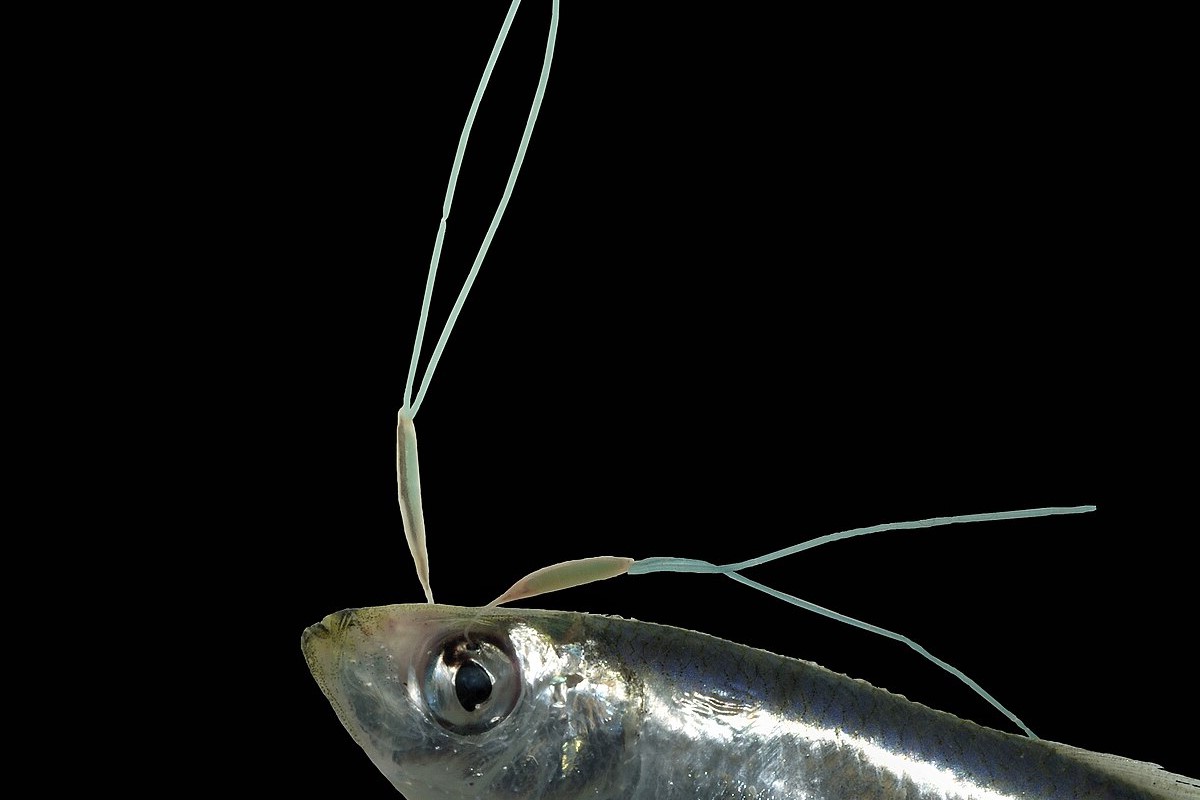
Fish eye parasites might sound like something out of a horror movie, but they are very real. These tiny invaders can cause significant problems for fish, affecting their vision and overall health. What exactly are fish eye parasites? They are organisms that live in or on the eyes of fish, often causing cloudiness, swelling, or even blindness. Understanding these parasites is crucial for anyone interested in marine biology, fishing, or aquarium keeping. This blog post will dive into 35 fascinating facts about fish eye parasites, shedding light on their life cycle, impact on fish, and how to manage them. Get ready to learn some surprising details about these microscopic menaces!
Key Takeaways:
- Fish eye parasites are tiny organisms that can cause vision problems and infections in fish. They can be found in both freshwater and saltwater environments, and can be transmitted through contaminated water or infected prey.
- Fish can acquire eye parasites through swimming in contaminated water, eating infected prey, or through their gills. Preventing parasite infections involves maintaining clean water, regular health checks, and educating fish owners about prevention strategies.
What Are Fish Eye Parasites?
Fish eye parasites are tiny organisms that live in or on the eyes of fish. These parasites can cause various health issues for their hosts, including impaired vision and infections. Here are some fascinating facts about these intriguing creatures.
-
Fish eye parasites are often microscopic, making them hard to detect without specialized equipment.
-
These parasites can be found in both freshwater and saltwater environments.
-
Common types of fish eye parasites include flukes, nematodes, and protozoans.
-
Fish eye parasites can cause cloudiness in the eyes of their hosts, leading to vision problems.
-
Some fish eye parasites are transmitted through contaminated water or infected prey.
How Do Fish Eye Parasites Affect Fish?
The presence of parasites in fish eyes can have significant impacts on their health and behavior. Understanding these effects is crucial for managing fish populations and ensuring their well-being.
-
Infected fish may exhibit abnormal swimming patterns due to impaired vision.
-
Fish eye parasites can cause inflammation and swelling in the eyes.
-
Severe infections can lead to blindness in fish.
-
In some cases, fish eye parasites can spread to other parts of the body, causing systemic infections.
-
Fish with eye parasites may become more susceptible to predators due to their compromised vision.
How Do Fish Get Eye Parasites?
Fish can acquire eye parasites through various means, including their environment and diet. Knowing how these parasites spread can help in developing prevention strategies.
-
Fish can contract eye parasites by swimming in contaminated water.
-
Eating infected prey is another common way fish get eye parasites.
-
Some parasites can enter fish through their gills and migrate to the eyes.
-
Fish farms and aquariums can be hotspots for parasite transmission if not properly managed.
-
Wild fish are more likely to encounter eye parasites due to their exposure to diverse environments.
Can Fish Eye Parasites Be Treated?
Treating fish eye parasites can be challenging, but there are methods available to help infected fish. These treatments aim to eliminate the parasites and alleviate the symptoms they cause.
-
Anti-parasitic medications can be used to treat fish eye parasites.
-
Salt baths are a common home remedy for mild parasite infections in fish.
-
Quarantining infected fish can prevent the spread of parasites to other fish.
-
Regular water changes and tank maintenance can reduce the risk of parasite outbreaks.
-
In severe cases, surgical removal of parasites may be necessary.
Interesting Facts About Fish Eye Parasites
Beyond their impact on fish health, fish eye parasites have some unique and surprising characteristics. These facts highlight the complexity and diversity of these tiny organisms.
-
Some fish eye parasites have complex life cycles involving multiple hosts.
-
Certain parasites can alter the behavior of their fish hosts to increase their chances of transmission.
-
Fish eye parasites can be highly specialized, targeting specific fish species.
-
Some parasites can survive in extreme environmental conditions, such as high salinity or low oxygen levels.
-
Fish eye parasites have been found in fossilized fish, indicating their long evolutionary history.
How Do Scientists Study Fish Eye Parasites?
Research on fish eye parasites involves various techniques and approaches to understand their biology and impact on fish. These studies are essential for developing effective control measures.
-
Microscopy is a key tool for identifying and studying fish eye parasites.
-
Molecular techniques, such as DNA sequencing, help scientists understand parasite genetics.
-
Field studies involve collecting fish samples from different environments to assess parasite prevalence.
-
Laboratory experiments can simulate parasite infections to study their effects on fish.
-
Collaboration between marine biologists, veterinarians, and ecologists is crucial for comprehensive parasite research.
Preventing Fish Eye Parasite Infections
Prevention is always better than cure, and there are several strategies to minimize the risk of fish eye parasite infections. These measures can help protect both wild and captive fish populations.
-
Maintaining clean and well-filtered water in aquariums and fish farms is essential.
-
Regular health checks for fish can help detect parasite infections early.
-
Avoiding overcrowding in fish tanks reduces stress and the risk of parasite transmission.
-
Quarantining new fish before introducing them to an existing population can prevent the spread of parasites.
-
Educating fish owners and aquaculture workers about parasite prevention can lead to healthier fish populations.
The Final Splash
Fish eye parasites are more than just gross. They reveal a lot about aquatic ecosystems. These tiny invaders can affect fish health, behavior, and even the food chain. Knowing about them helps scientists monitor water quality and fish populations. It also aids in developing treatments to keep fish healthy.
Next time you see a fish, remember there's more going on than meets the eye. Parasites might be lurking, playing their part in the underwater world. Understanding these creatures can lead to better fish care and healthier ecosystems.
So, whether you're a fisherman, a scientist, or just curious, keep learning about fish eye parasites. It's a small but fascinating part of nature's big picture. Dive into the details, and you'll find there's always more to discover beneath the surface.
Frequently Asked Questions
Was this page helpful?
Our commitment to delivering trustworthy and engaging content is at the heart of what we do. Each fact on our site is contributed by real users like you, bringing a wealth of diverse insights and information. To ensure the highest standards of accuracy and reliability, our dedicated editors meticulously review each submission. This process guarantees that the facts we share are not only fascinating but also credible. Trust in our commitment to quality and authenticity as you explore and learn with us.


